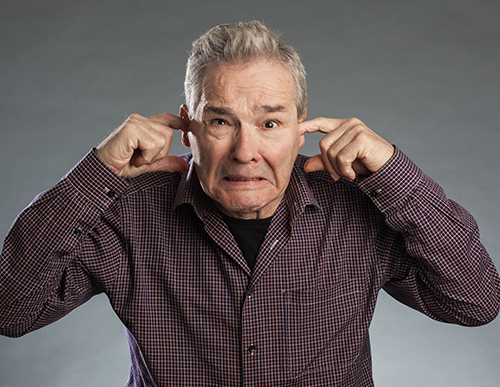
I’m sure it’s not my hearing because…if you find yourself saying that these days than you already understand how easy it is to deny hearing loss. The Hearing Loss Association of America explains that simply knowing that hearing loss exists is the biggest obstacle people face. It starts with admitting there’s a problem and then getting proactive about it. The first step is to see a doctor and get a professional hearing test. Consider some of the more common excuses people use to deny their hearing loss.
1. The Change is Gradual, So You Don’t Notice
This is especially true with age-related hearing loss. This form of hearing loss can early and get progressively worse over time. People don’t always notice it until little things start happening like a family member harping on them about the TV being too loud or they feel like they are always behind in the conversation. For some, the first real symptom that there is a hearing problem comes with the onset of tinnitus or ringing in the ears. By the time the ringing starts, though, the loss is already affecting your life.
2. You Pass the Hearing Loss Buck
It’s not you; it’s that outdated television set. Maybe it’s not you but the spouse who is always mumbling. Your first instinct may be to pass the buck because it just doesn’t occur to most people that they have a hearing problem. If your hearing has always been so good, why would you suddenly think it is failing? It probably seems much more likely that what you are trying to hear is at fault even though that is rarely the case.
3. The Doctor Didn’t Say You Had a Hearing Problem
During your last check-up, the doctor didn’t say anything to you about hearing loss, so it must not exist. The problem with that excuse is even the best doctor can miss a hearing problem unless he or she knows to look for it.
This form of age-related hearing loss generally affects the inner ear, so it’s not something that will pop up during your annual checkup. It may be the doctor notices you are struggling to hear, but people with this problem tend to compensate without even knowing it. It is easy for a doctor who sees you only occasionally or maybe for the first time ever to miss.
4. No Else Said You Had Hearing Loss Either
Well, maybe you just didn’t hear them. While most of the time the people in your life will recognize your hearing loss before you do, it is hardly a deciding factor. If they do notice something, they may think they’re being over critical or maybe they’re just mistaken.
In the end, this is still how most people figure out there is a problem, but it may take time for your family to notice enough to say something. In fact, if you are sharing your life with a spouse who is aging right along side you, then he or she has their own hearing struggle going on. It’s understandable if it didn’t come up in conversation. Adult children don’t see their parents as often as they used to, either, so it might be awhile before they recognize the signs in mom or dad.
5. It Seems to Come and Go
It’s very common for hearing loss to affect high-frequency sounds only. What that means to you is that the hearing problem can seem to come and go, so it doesn’t seem real. That’s a common reason many people with hearing loss put the blame on the speaker. You seem to hear everything else just fine, after all. You blame the mumbling as opposed to noticing your hearing loss. At some point, friends and family might point out that you seem to be missing parts of the conversation, but you can continue to deny your hearing loss until that happens.
What can you do to stop denying the problem? The answer is simple. Ask your doctor next time you have a physical if you might have hearing loss or go ahead and make an appointment to double check. A simple in-office test using a tuning fork can shine some light on the problem.
If the answer turns out to be “maybe”, then you at least have factual information to consider. The next step will be a professional hearing test with a hearing instrument specialist to see the extent of your loss and to find solutions to fix the problem. There is no way to reverse age-related ear damage, but something as simple as hearing aids is a real life-changer for people who have been denying their hearing loss for way too long.